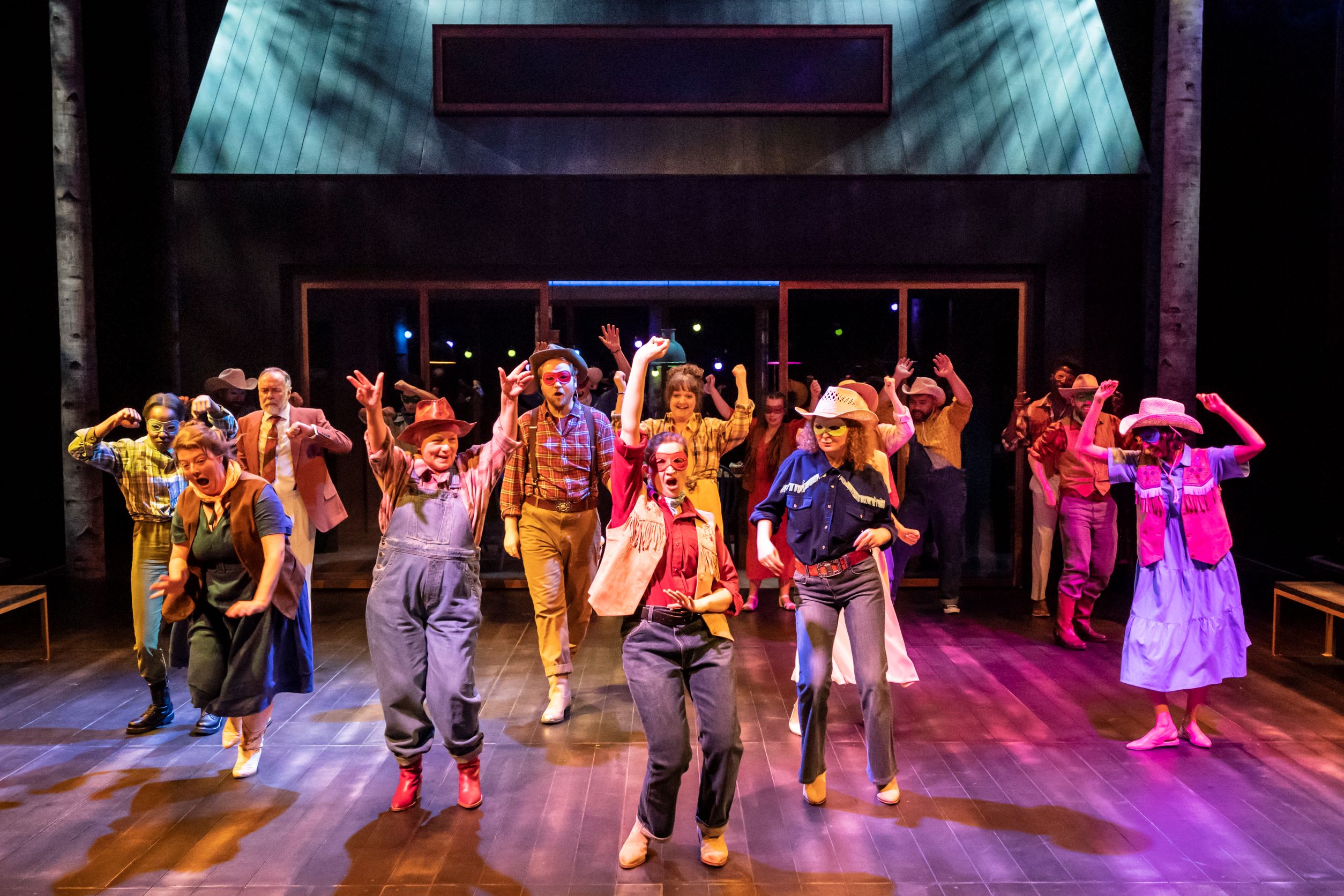
Culture Writer Youssra Hajji reviews Much Ado About Nothing and finds the incorporation of both BSL and Audio Description to be smoothly integrated into the show whilst still maintaining the core principals of a Shakespearean comedy
The Rep was host to an impressive performance of Much Ado About Nothing on Wednesday 5th October. As always, any Shakespearean play poses an added level of difficulty in terms of acting and directing due to the old-fashioned and greatly unfamiliar style of English to us now. However, on top of this, Much Ado About Nothing was the first Ramps Shakespearean show and first show impressively featuring both a BSL (British Sign Language) and AD (Audio Description) director.
You can imagine what a challenge it would have been to integrate both into the play, and yet, although certainly having a different atmosphere to a usual Shakespearean show, this was not any less engaging, but perhaps even more so interesting with it’s alternative structure and layout that still maintained the core principals of a good Shakespearean comedy.
first show impressively featuring both BSL and AD…still maintained the core principals of a good Shakespearean comedy
The play began with a more inclusive adaptation of audio description: whilst usually members of the audience who are visually impaired would be given a headphones set, instead, this time each character introduced themselves at the start, describing what they were wearing and looked like. This simple (around five minute) start seemed so smoothly integrated into the show, for it introduced us to the characters and their actors in a fun, engaging manner, whilst still importantly creating a more fair and inclusive environment for those with a visual impairment instead of confining them to audio through a headset.
Throughout the play, most actors used sign language whilst speaking, which, in my humble opinion, only added to their apparent engagement in what they were saying, as gestures tend to do. But more interestingly and impressively was the inclusion of characters who spoke for others that only signed. For example, Margaret (Laura Goulden) spoke for Hero (Claire Wetherall), who still acted but signed instead, which Margaret translated into speech. Conrade (Ciaran Stewart) sometimes spoke for the Duchess Joanna – (Fatima Niemogha), who is deaf, when she chose to sign over speaking.
most actors used sign language whilst speaking, which…only added to their apparent engagement in what they were saying
The diverse casting in this way was amazing because it was inspiring to see that no matter what disability someone had, it didn’t seem to impact the casting, as proven by two lead roles: Hero and Duchess Joanna being played by deaf actresses who nailed their roles. The integrated BSL and AD did not take anything away from the show, but instead introduced the audience to a different but more inclusive and as equally engaging way of performing plays. Even Shakespearean ones.
As a comedy, the second half of the show was certainly the peak of entertainment, for the plot itself and climax both build up until then. Watching Beatrice (Daneka Etchells) and Benedick (Guy Rhys) being artfully manipulated into softening towards one another, after hearing about the other’s supposed confessions of love and tender feelings, had me clutching my sides they hurt so much from laughing. Certainly the funniest scene was the massage Don Pedro, Claudio and Leonarto were each given while gossiping about Beatrice loving Benedick.
Meanwhile, the said reciever of Beatrice’s love was hidden under the massage beds listening in with confusion, and even at one point massaging the gossipers themselves. Guy Rhys’s portrayal of a dumbfounded and shocked Benedick was entertaining in his astounded facial expressions and loose hands as he slapped or appreciatively patted the unaware three whenever they complimented or insulted him. Between him and Beatrice’s exclamations of shock whilst sitting amongst the audience during her own exposure to Benedick’s love for her, I couldn’t contain my laughter. And that’s all you can ask for from a comedy, right?
…I couldn’t contain my laughter
Much Ado About Nothing is a famous Shakespearean classic of old; a comedy renowned for the witty banter between its lead roles. The Ramps bought us a taste of it all: the laughter, the romance, the plot, the weird English. But most significantly, it bought with it a taste of opportunity and inclusivity for both casting and audience. I’d never seen it before, but I sure do hope to see it again and again in the future!
Enjoyed this? Read more Redbrick Culture here!
Comments